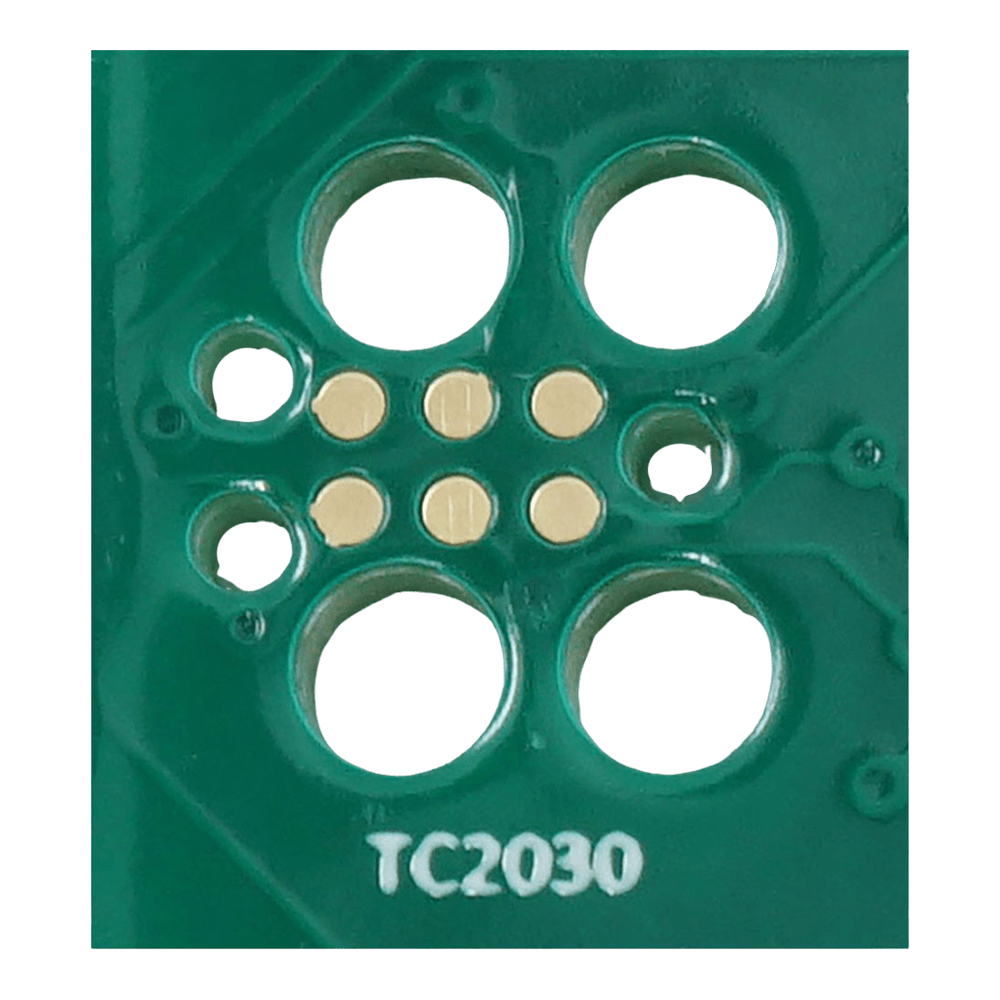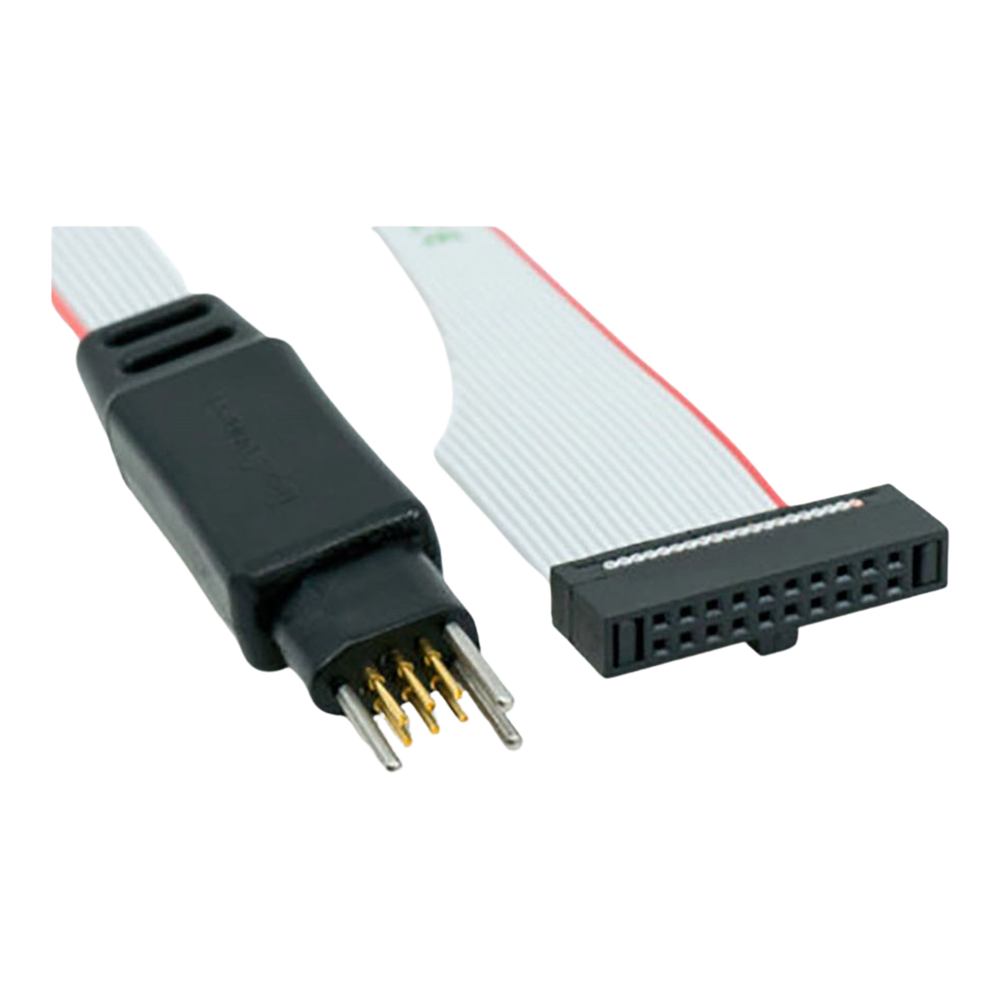
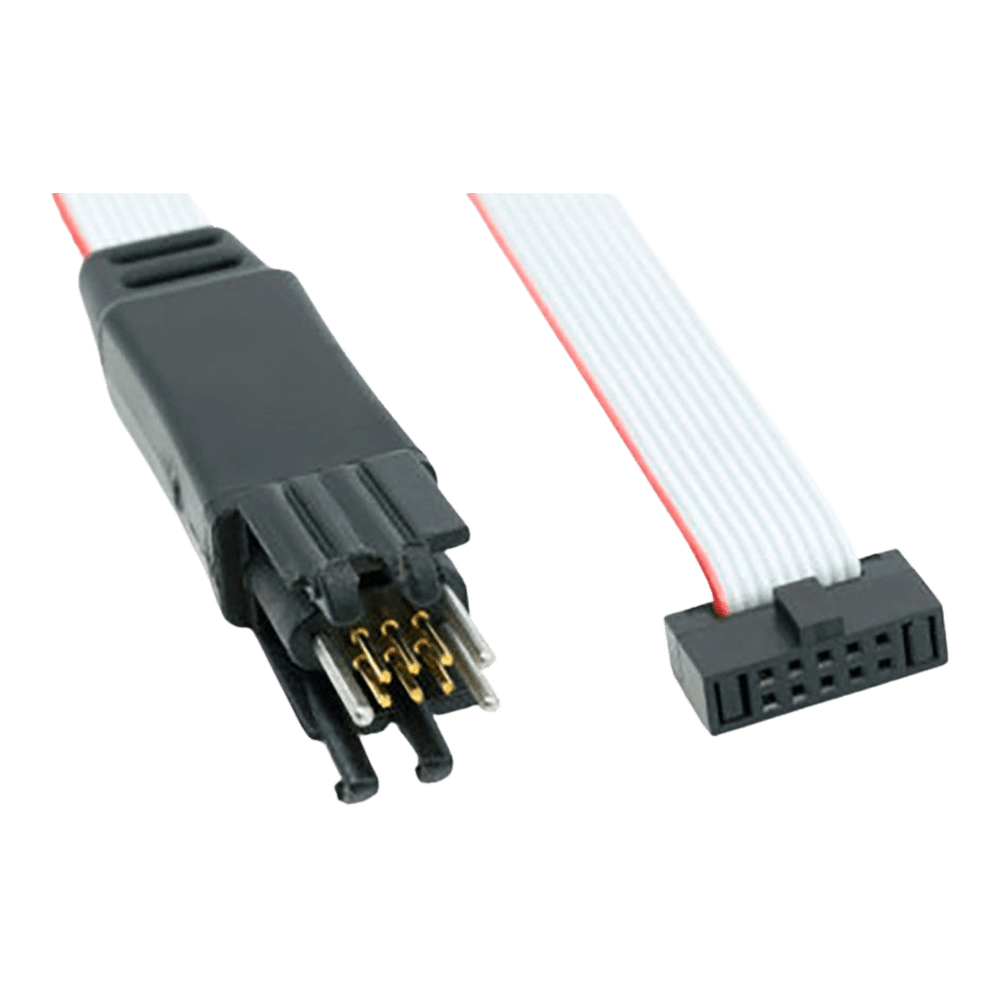
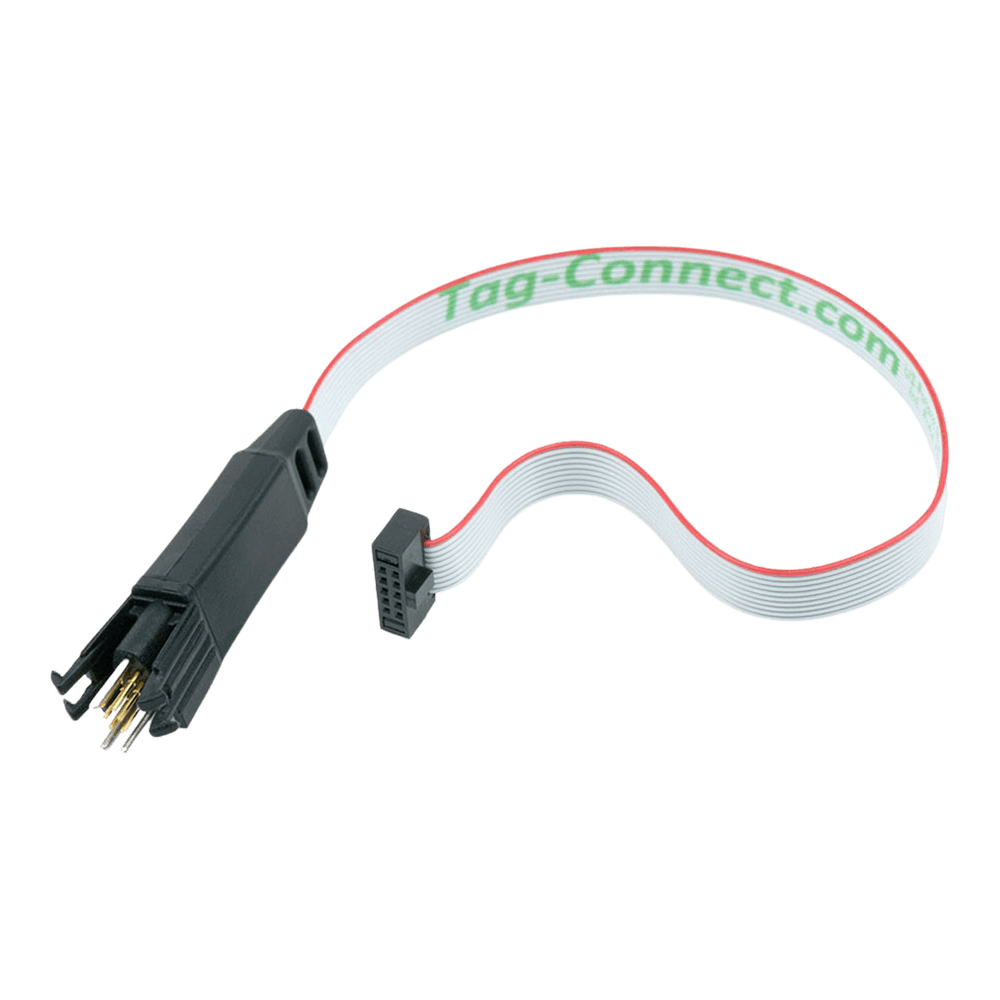
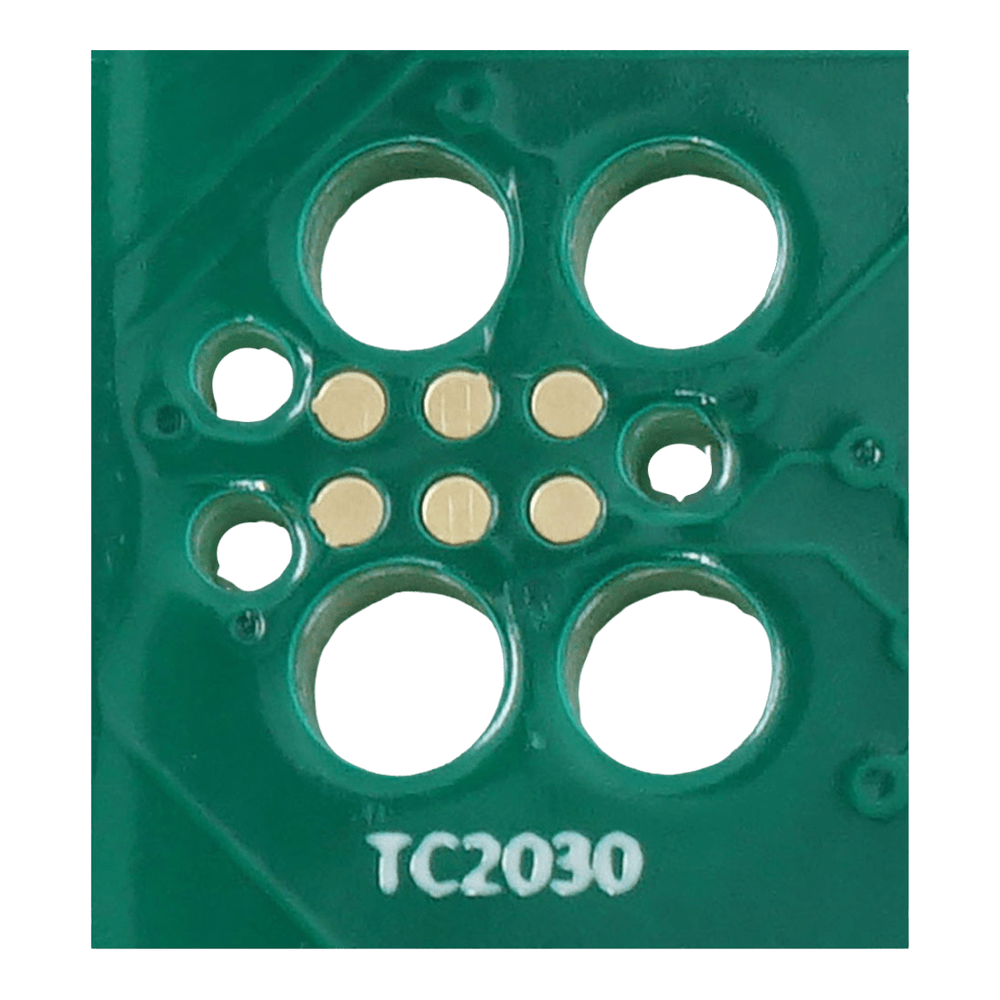
Key Features
Overview
The Tag-Connect TC2030-CTX is a 6-pin, legged Plug-of-Nails™ cable for programming and debugging ARM® Cortex® targets over SWD. It mates to the tiny TC2030 footprint on your PCB and presents a 10-pin 0.05″ Cortex ribbon at the tool end, compatible with common debuggers such as ULINK-2 and similar.
Using the TC2030 footprint removes the need for a mated header on the board, reducing PCB area and helping control BoM cost while still providing a robust, repeatable connection. The legged design clips into four locating holes for hands-free stability during development and test.
The TC2030-CTX is part of a family, so you can match the cable to your toolchain: for ST-LINK/V3 choose the TC2030-CTX-NL-STDC14 (No-Legs) or legged STDC14 variant; if you need a 20-pin Cortex tool end see TC2030-CTX-20; for general 0.1″ IDC targets consider TC2030-IDC-NL; Altera/Intel users can opt for TC2030-ALT.
If you want SWD on a compact, solder-free target footprint with reliable retention during debug, the TC2030-CTX is a practical choice for professional designs.
Downloads
Why Engineers Choose The Tag-Connect TC2030-CTX 6-Pin Cable for ARM Cortex (SWD)
Space, not sockets
Stable during debug
Fits your toolchain
6-Pin Legged TC2030 Plug-of-Nails programming cable for use with ARM Cortex processors.
This special cable has a 6-pin TC2030 Tag-Connector and a 10-pin ribbon and ribbon connector. It mates with the FTSH-105 style micro-headers used for Cortex Debug Connector; as found in debuggers such as the Keil ULINK-2.
See also the TC2030-CTX-NL "No Legs" version of the cable with footprint that saves over 66% of the board space needed by typical FTSH-105 micro headers!
For traditional ARM solutions using the 20-pin header as found on the Segger J-LINK, see the TC2050-ARM2010 adapter used with TC2050-IDC (-NL) cables.
WARNING for ATMEL-ICE users: The Atmel-ICE has it's header pin numbers reversed (standard pin 1 is Atmel ICE's pin 10). To use our cable with Atmel's reversed pin-number header you'll either need to cut off the ribbon connector locating lug and plug it in reversed, or select the LEMTA version with the 10-pin connector fitted backwards. If you plug in a standard (correct) Cortex cable you're going to short power and stuff out.
Note: Cable only supplied, Keil's ULINK2 debugger and Tag-Connect Demo PCB shown for illustrative use – not included with the cable!
| General Information | |
|---|---|
Part Number (SKU) |
TC2030-CTX-NL
|
Manufacturer |
|
| Physical and Mechanical | |
Weight |
0.1 kg
|
| Other | |
EAN |
5055383698660
|
Frequently Asked Questions
Have a Question?
-
What if I later switch toolchains?
Remain on the TC2030 target footprint and change only the cable variant (e.g., to STDC14 or 20-pin) to suit the new probe.
-
Is polarity fool-proof on the target?
Yes—the locating pins and footprint orientation help ensure correct alignment when mated.
-
Will this reduce PCB area vs a 10-pin header?
Yes—the TC2030 footprint is significantly smaller than a 10-pin micro-header, helping save space on dense boards.
-
Is there a recommended method to hold No-Legs versions?
Yes—Tag-Connect clips/retainers can hold No-Legs cables during longer sessions.
-
What PCB features do I need on the target?
Provide the 6 contact pads plus the four locating holes for legged retention, following the TC2030 footprint guidelines.
-
Can I access trace (ETM)?
Use the CTX-ETM variant, which adds a TC2050 tail for the 20-pin Cortex trace signals while retaining SWD on the TC2030.
-
How do I use it with ST-LINK/V3 (STDC14)?
Choose a CTX-to-STDC14 variant (legged or No-Legs) to connect ST-LINK/V3 while keeping the 6-pin TC2030 on your target.
-
Which debuggers does the 10-pin end suit?
It mates with the standard 0.05″ “Cortex-10” micro-header used by many probes (e.g., ULINK-2, similar interfaces). Check your probe’s connector type before ordering.
-
What’s the difference between legged and No-Legs cables?
Legged versions clip into four holes for hands-free stability during development; No-Legs are held by hand or with a clip and are common for production flashing.
-
Does the TC2030-CTX carry full JTAG?
No. It is intended for SWD (and SWO). For full JTAG, use an appropriate 10/14/20-pin solution or other Tag-Connect families that expose JTAG pins.




